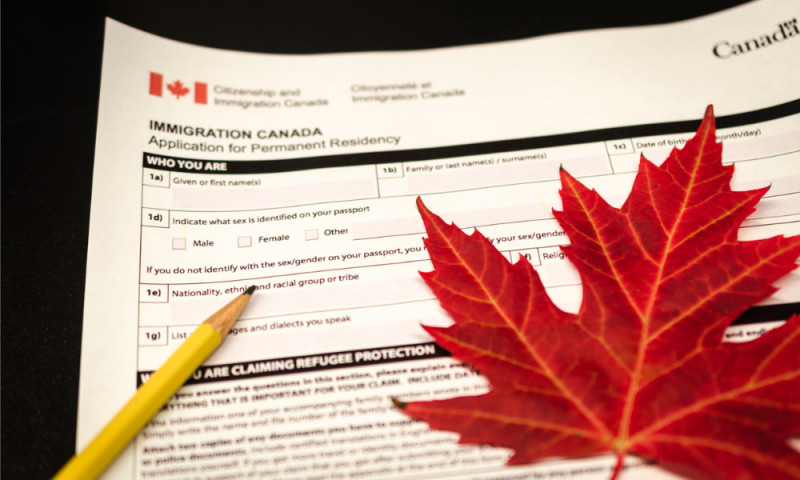Complete Checklist of Forms and Supporting Documents

Best Practices for Organizing and Submitting Your Immigration Paperwork
Summary
Submitting a Canadian immigration application requires a thorough dossier of forms and supporting paperwork. You must provide core IRCC application forms alongside identity and civil-status documents, proof of language ability, educational credentials, work experience, and evidence of funds. In addition, medical exam results, biometrics receipts, police clearances, and program-specific certificates (such as provincial nominations or sponsorship undertakings) are often mandatory. Careful organization, certified translations where needed, and clear labeling will help your file sail through the review process and minimize delays.
On This Page You Will Find:
- Core Application Forms
- Identity and Civil Status Documents
- Proof of Eligibility: Language, Education, and Work Experience
- Medical Exams, Biometrics & Police Checks
- Additional Program-Specific Documents
- Fees and Payment Receipts
- Tips for Organizing and Submitting Your Documents
Core Application Forms
- Generic Application for Permanent Residence (IMM 0008) – Primary form for most PR streams.
- Additional Family Information (IMM 5406) – Details on your family members.
- Schedule A: Background/Declaration (IMM 5669) – Security and criminal background.
- Use of a Representative (IMM 5476) – If you appoint an agent or lawyer.
- Other Program-Specific Forms – Vary by stream (e.g., Provincial Nominee Program forms, sponsorship forms).
Identity and Civil Status Documents
- Valid Passport – Biographical page copy for you and any accompanying family.
- Birth Certificate – Official copy with English or French translation.
- Marriage Certificate / Divorce Decree – If married, separated, or divorced.
- Adoption or Custody Papers – For adopted children or guardianship cases.
- Photographs – As per IRCC specifications (size, background, date).
Proof of Eligibility: Language, Education, and Work Experience
- Language Test Results – IELTS, CELPIP (English) or TEF (French) for the required minimum score.
- Educational Credential Assessment (ECA) – For degrees, diplomas, or certificates earned abroad.
- Transcripts & Diplomas – Copies of academic records supporting your ECA.
- Reference Letters / Employment Letters – On company letterhead, detailing positions, duties, and dates.
- Curriculum Vitae / Resume – Outlining your professional history.
Medical Exams, Biometrics & Police Checks
- Medical Exam Results – From an IRCC-approved panel physician.
- Biometrics Instruction Letter & Receipt – Confirmation of fingerprint/photo appointment.
- Police Clearance Certificates – From every country where you’ve lived 6+ months since age 18.
Additional Program-Specific Documents
- Provincial Nomination Certificate – If applying under a Provincial Nominee Program.
- Labour Market Impact Assessment (LMIA) or Job Offer Letter – For certain work-permit streams.
- Quebec Selection Certificate (CSQ) – For applications under Québec’s skilled worker program.
- Sponsor Undertaking & Financial Documents – For family sponsorship cases.
- Business Plans & Financial Statements – For entrepreneur or investor programs.
Fees and Payment Receipts
- Processing Fee Receipts – Proof of payment for application fees.
- Right of Permanent Residence Fee Receipt – For PR streams where applicable.
- Biometrics Fee Receipt – If biometrics are not included in main fees.
Tips for Organizing and Submitting Your Documents
- Label Every Section – Use tabs or colour-coded dividers matching the order of the IRCC document checklist.
- Certified Translations – Include both original and translated versions, with translator’s affidavit.
- Clear Scans or Photocopies – Ensure legibility; avoid dark edges or blurred text.
- Table of Contents – At the front of your package, list every document with page numbers.
- Digital Filing Best Practices – Name PDF files with your name and form number (e.g., “Smith_IMM0008.pdf”).
Conclusion
A complete, well-organized application package is your first step toward Canadian immigration success. By including all required core forms, identity papers, proof of eligibility, medical/biometric clearances, and program-specific documents—and by presenting them in a clear, systematic order—you’ll minimize processing delays and demonstrate your professionalism to IRCC officers. Good preparation now paves the way for a smooth path to Canada.
